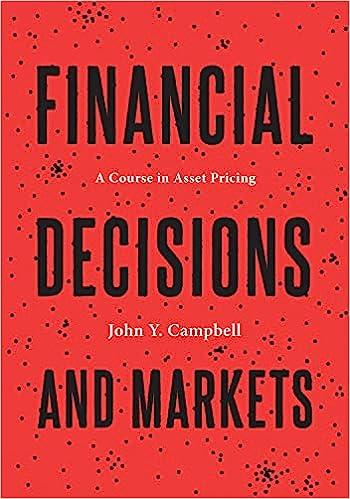Consider the risksharing problem of two infinitely lived agents, who receive random shares of a fixed endowment
Question:
Consider the risksharing problem of two infinitely lived agents, who receive random shares of a fixed endowment \(e\). Each period there are two states of the economy. In state 1 , agent 1 receives \(e / 2+k\) and agent 2 receives \(e / 2-k\), while in state 2 agent 1 receives \(e / 2-k\) and agent 2 receives \(e / 2+k\). The conditional probabilities of the two states are constant and equal. Each agent maximizes a discounted sum of expected period utilities, with time discount factor \(\delta\). Period utility is quadratic,
![]()
where \(\widetilde{c} \equiv c-e / 2\) and \(c\) is the level of consumption during the period.
Following Alvarez and Jermann (2000), assume that the only punishment for default is permanent exclusion from the financial market.
(a) Calculate an agent's expected utility under perfect risksharing.
(b) Calculate an agent's expected utility under autarky, if the state is initially bad and if the state is initially good.
(c) Derive a condition under which no risksharing is possible.
(d) Show that this condition is equivalent to "high implied interest rates" in autarky as defined by Alvarez and Jermann.
(e) Characterize the conditions under which partial risk sharing, but not full risk sharing, is possible.
Step by Step Answer:

Financial Decisions And Markets A Course In Asset Pricing
ISBN: 9780691160801
1st Edition
Authors: John Y. Campbell





